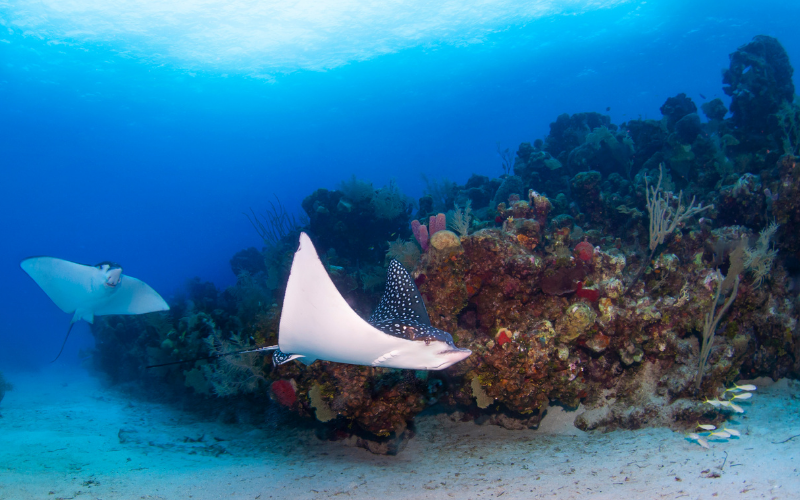
Roatan’s Coral Reefs
Roatan’s coral reefs are part of the larger Mesoamerican Reef—the second largest barrier reef system in the world. On the southwest side of the island, the Cordelia Banks Site of Wildlife Importance is home to one of the last remaining healthy patches of staghorn coral, a keystone coral species, in the Mesoamerican region.
Roatan’s incredible marine environment attracts over 1.9 million tourists and visitors to the island each year, contributing nearly $1 billion USD to the Honduran economy annually. But that same tourism poses a threat to coral reefs and the wildlife that depend on it.
Additionally, unplanned urban development and insufficient wastewater treatment facilities often result in untreated sewage entering the ocean where it negatively impacts coral reefs and human health. And, like in many coastal communities, overfishing often removes vital species that feed on algae and help keep the coral reefs in balance.
Our Work
Our work in Roatan is built on partnerships with organizations like the Roatan Marine Park, Bay Islands Conservation Association (BICA), Healthy Reefs Initiative, ZOLITUR, the central and local governments, as well as other nonprofits and community organizations. We support these organizations in building sustainable and lasting conservation solutions that help support local island communities and economies.
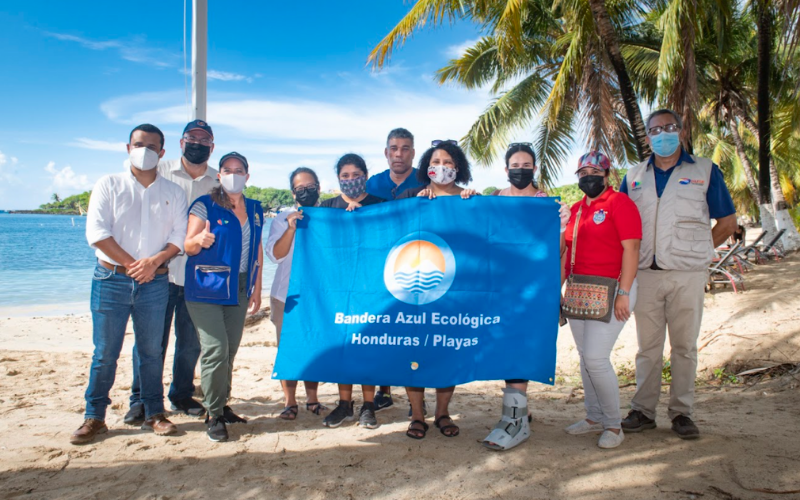
Clean Water for Reefs
Our work in Roatan to ensure coral reefs has paved the way for the rest of our water quality work throughout the Mesoamerican region. In the community of West End, we helped the Polo’s Water Board operationalize their wastewater treatment system and connect over 99% of viable homes and businesses to it. The project led to a significant reduction in bacteria levels in the marine environment, and the local beach has now received two blue flag certifications—a first for any developed beach in Honduras. We are building upon our successes in West End to expand our work to the neighboring communities of West Bay and Coxen Hole, as well as other locations throughout the region. We also partner with BICA Roatan to regularly monitor marine water quality, and helped them build the first and only water quality monitoring laboratory in the Bay Islands.
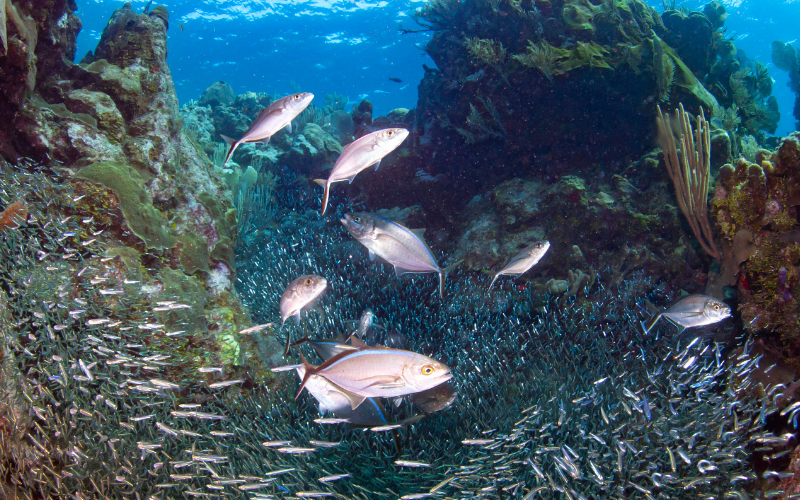
Healthy Fisheries
Roatan sits within the larger Bay Islands National Marine Park, and the area around Roatan is protected by the Roatan Marine Park (RMP), a local nonprofit organization and a close CORAL partner. Throughout our time in Roatan, we have helped the RMP establish a strong fisheries management plan that is built upon community support, regular data collection and monitoring, and a robust system of patrols and enforcement. To ensure they have the funds necessary to continue these efforts, we helped the RMP develop a sustainable business model. We continue partnering with RMP to grow their programs and support them during tough times—like COVID lockdowns and the arrival of Stony Coral Tissue Loss Disease.
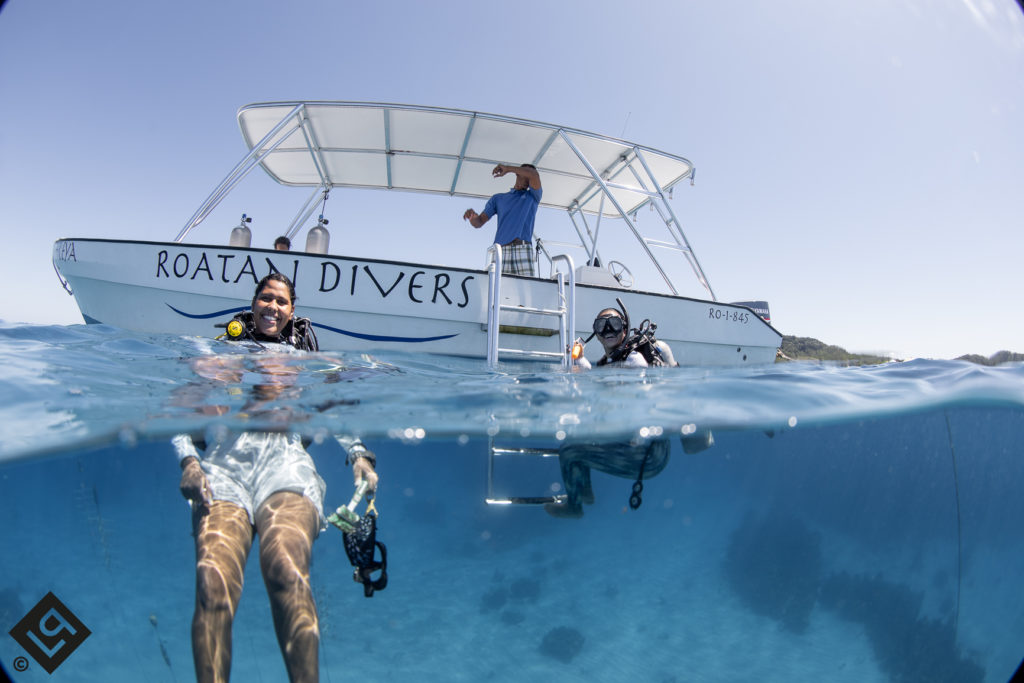
Habitat Protection
With Roatan’s reefs supporting so much tourism traffic, ensuring these ecosystems remain intact is essential. In fact, our work in Roatan began in 2005 through a partnership with the Roatan Marine Park to install mooring buoys that helped protect coral reefs from damage by boat anchors. Several years later, we were successful in helping the government declare Cordelia Banks as a protected area to help protect it from the negative impacts of surrounding tourism. Today, we continue to work with local partners, businesses, and tourists to create a culture of environmental stewardship and reef-protection efforts and advocate for coral reef protection measures.
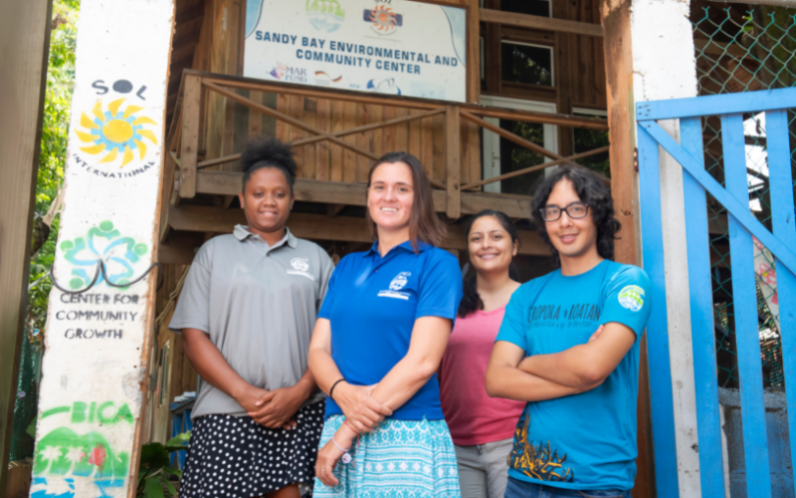
Get Involved
If you’re a local resident of Roatan and interested in joining our efforts to protect coral reefs, we encourage you to reach out to the Roatan Marine Park and BICA Roatan to take advantage of their community opportunities and programs.
If you’re traveling to Roatan soon, visit Go Blue Bay Islands to find a list of businesses and activities to support that help protect the natural environment.
Recent News
Resources
Train the Trainers
CORAL and partners have developed this “Train the Trainers” program for tour guide operators in the Mesoamerican Reef to more effectively educate tourists about coral reefs and how to protect them. The resources below all encompass the Train the Trainers program. Video Presentations These four Modules cover a number of topics, including reef biology and… Continue Reading →
Ecomorphological analyses reveal impact of land-based stressors on stock structure of two commercially important fish species in the Caribbean
Many Caribbean nations lack information on the ecology and biology of marine species, which are essential for food security and livelihoods in the region. This study aimed to advance the knowledge of two commercially important fish species, lane snapper (Lutjanus synagris) and white grunt (Haemulon plumierii), using cost-efficient techniques.
Good Environmental Practices: Diving and Snorkeling
Coral reefs are among the world’s most spectacular ecosystems. As coral reefs face an increasing number of threats, coral reef visitors can play an important role in helping protect these vulnerable habitats. Follow these simple guidelines to become a “coral friendly” diver/snorkeler.










